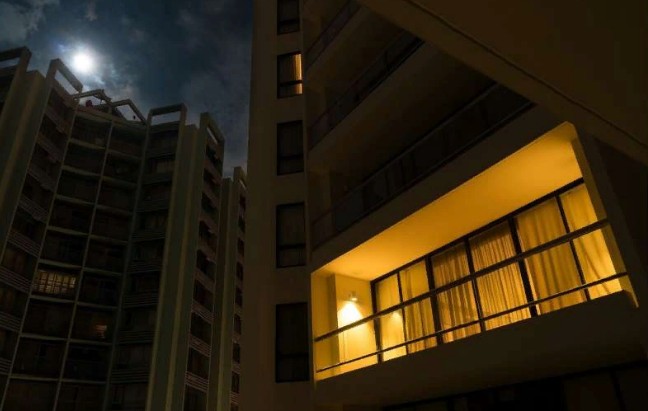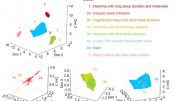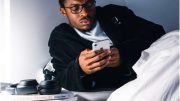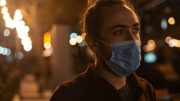Many so-called night folks feel that, when it comes to society’s expectations about when the workday should start, they got the short end of the stick.
Research demonstrates that “night owls” are hard-wired to sleep later, yet 9-to-5 job patterns drive them to resist their physiology and wake up early. Research has also demonstrated that standard timetables make adolescents vulnerable to physical and mental health difficulties.
It is tougher for night owls to operate in the world because they’re out of sync with the traditional schedule, said Kelly Baron, an associate professor at the University of Utah who studies sleep health and therapeutically treats patients who suffer from insomnia.
She observed that inadequate sleep is also a factor in worker absenteeism and the use of sick days. “We would get better performance out of employees if they were permitted to work at their best working hours.”
Her research has shown that keeping late evening hours can cause even healthy night owls to be prone to unhealthy habits like consuming fast food, not exercising, and socializing less.
But the COVID-19 epidemic, which forced many individuals to telework, offered more flexibility in work times, pushing sleep scientists to reassess ideas about sleep and how to assess patients.
The epidemic “was a multinational experiment to investigate how sleep varies as work hours and work settings change,” said Baron.
Researchers in Italy are among those delving into this subject. In a recent study, they found that many Italians who don’t generally fit into a standard daylight timetable thrived and their health improved when the pandemic’s remote working arrangements let them work later hours.
Federico Salfi, a PhD student at the University of L’Aquila and a self-professed night owl, partnered with colleagues late in 2020 to explore how the work-from-home trend affects Italian sleep habits. Through social media, they selected 875 people who represented in-office and remote workers.
They then employed web-based questionnaires to uncover the impact of remote working on sleep health. The findings: The pandemic’s work-from-home flexibility helped the participants better coordinate their work and sleep schedules—many of them for the first time.
More precisely, the researchers discovered evidence that evening-type people slept longer and better while working from home, with a corresponding drop in symptoms of despair and sleeplessness.
They also brought out an important trend that mirrors other studies—that people who fit into the night-owl category typically sleep fewer hours than early risers.
On his podcast, Matthew Walker, a professor of neurology and psychology at the University of California-Berkeley and author of “Why We Sleep,” said it was the difference between 6.6 hours a night and more than 7 hours a night that led night owls to accrue a chronic sleep debt. (The paper is available as a preprint and has not yet been peer-reviewed.)
So why don’t such individuals just go to bed earlier? The solution is difficult.
To feel sleepy requires a biochemical cascade of events to kick into action, and that time is regulated by a person’s chronotype. A chronotype is an internal “body clock” that regulates when people feel awake or tired throughout a 24-hour period.
The cycles are genetically established, with around half of people falling into the midrange—meaning they neither wake at dawn nor fall asleep past midnight—and the others evenly split as morning larks or night owls.
In archaic times, a combination of mismatched bedtimes had an evolutionary function. Evening types would watch over morning types as they slept, and vice versa.
Modern society, however, celebrates early risers while stigmatizing those burning the midnight oil, said Brant Hasler, associate professor at the University of Pittsburgh and part of the university’s Center for Sleep and Circadian Science. “We are catering to one section of our population at the expense of another.”
Walker has discussed particular health implications for his program. Late-night types are 30 percent more likely than early birds to acquire hypertension, which can lead to strokes or heart attacks, and 1.6 times as likely to have Type 2 diabetes since sleep affects blood sugar management.
They are also two to three times as likely to be diagnosed with depression and twice as likely to use antidepressants.
Research released in February also indicated that evening folks who slept more during the epidemic nevertheless had notably poorer mental health compared with morning larks.
Neither Walker nor Hasler were involved in the Italian study.
Still, other experts warned that the Italian study had shortcomings.
Were people constantly on those schedules?Or did they change after the pandemic? Because that is something that truly matters, “said Stijn Massar, a senior research fellow at the National University of Singapore.
Plus, since COVID has dramatically impacted practically all aspects of life, pandemic-era sleep statistics can get confused by the many lifestyle changes people have had to face.
Moreover, sleep scientists are still debating whether it is always healthy for someone to sleep in harmony with their chronotype.
It’s a question of prioritizing individual agendas versus community schedules. But “sleep is one of the great mysteries of life,” added Massar. “This is all rather hypothetical,” with each new study revealing glimpses of the greater picture.





